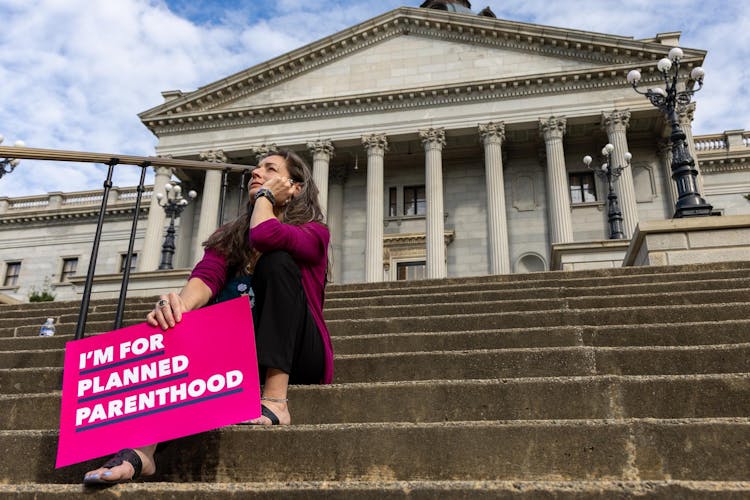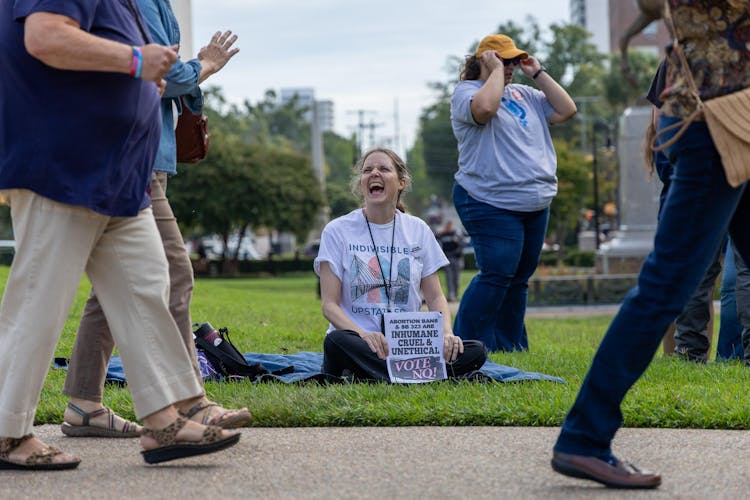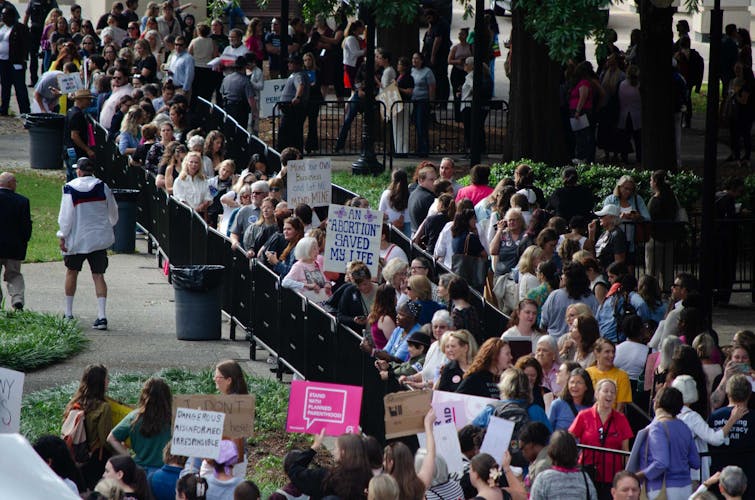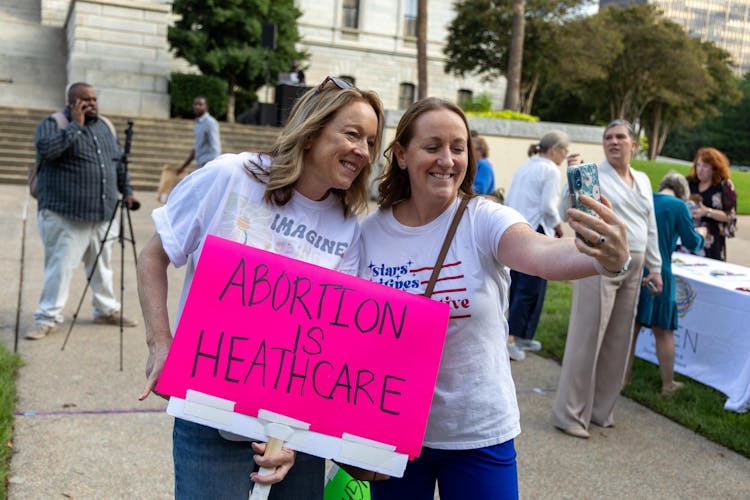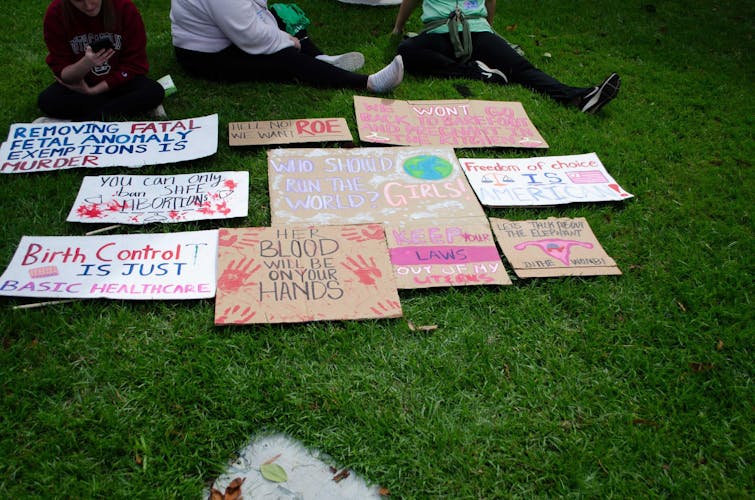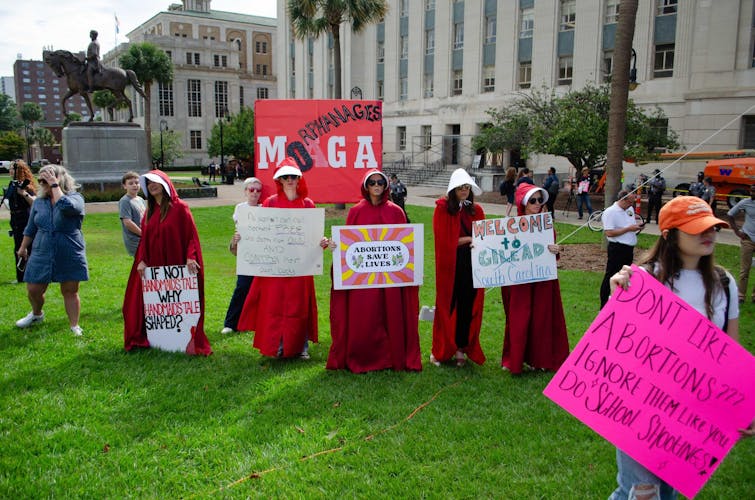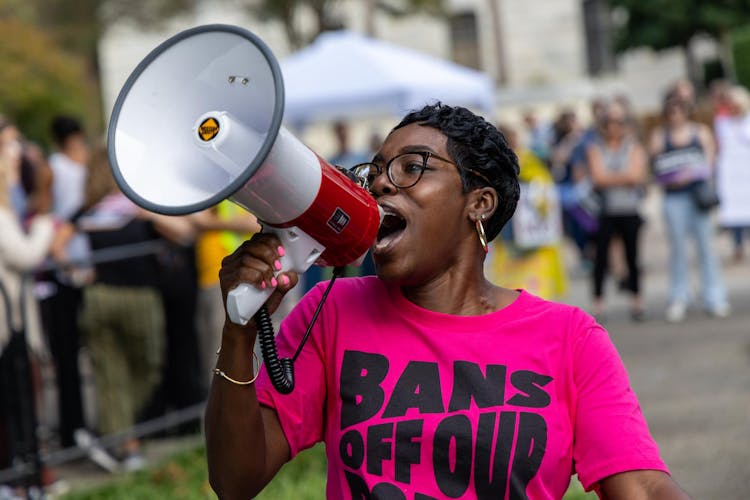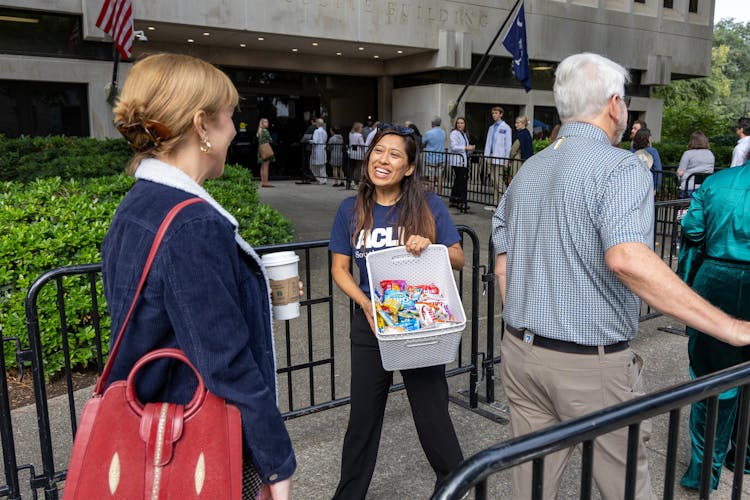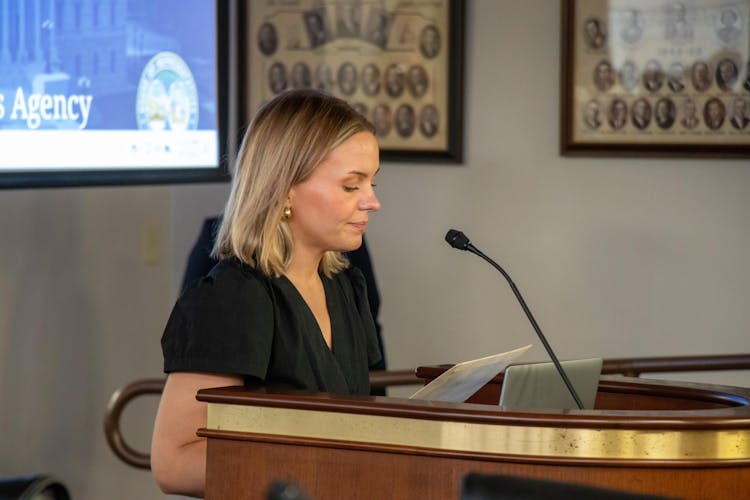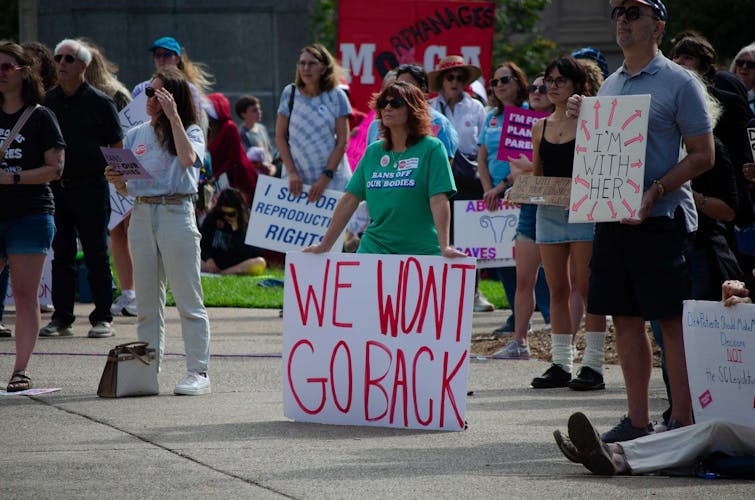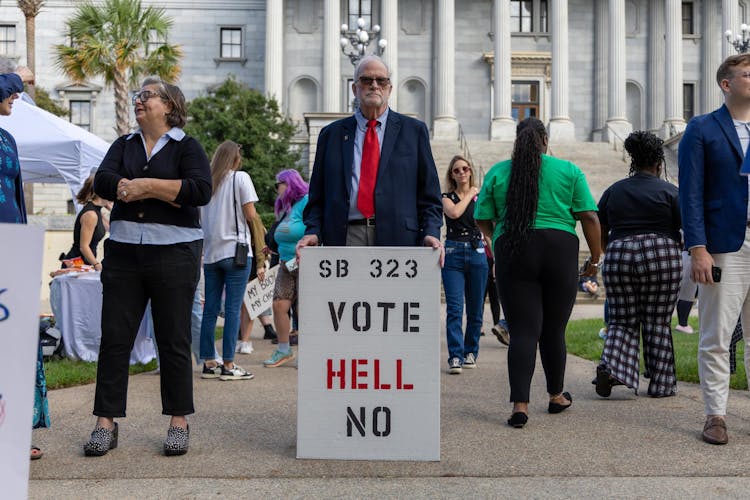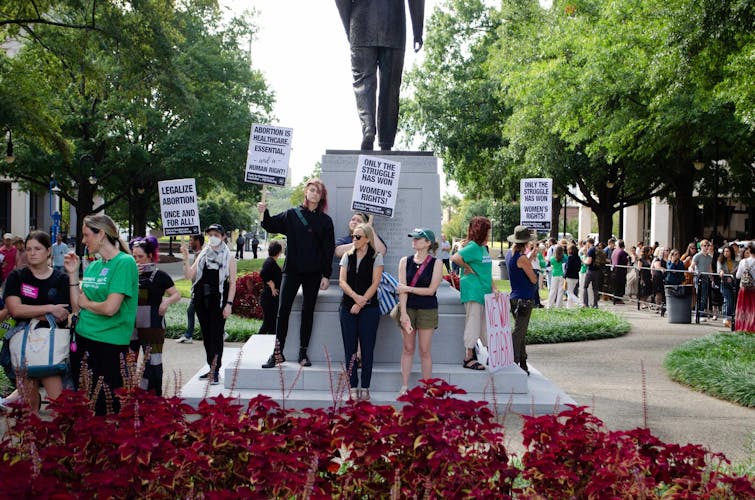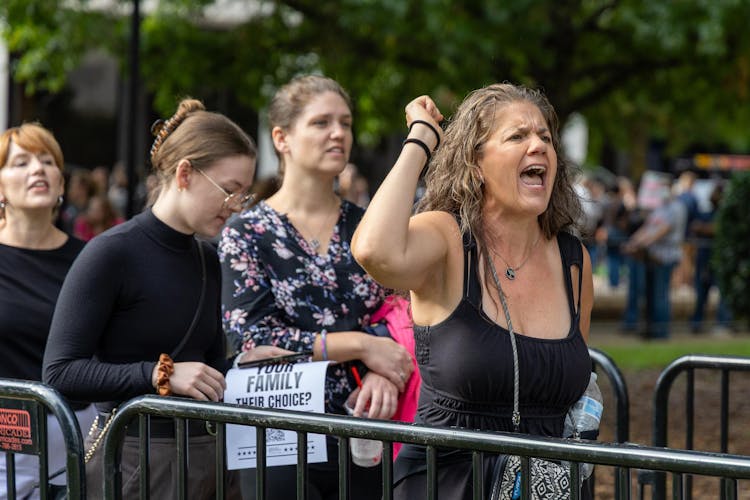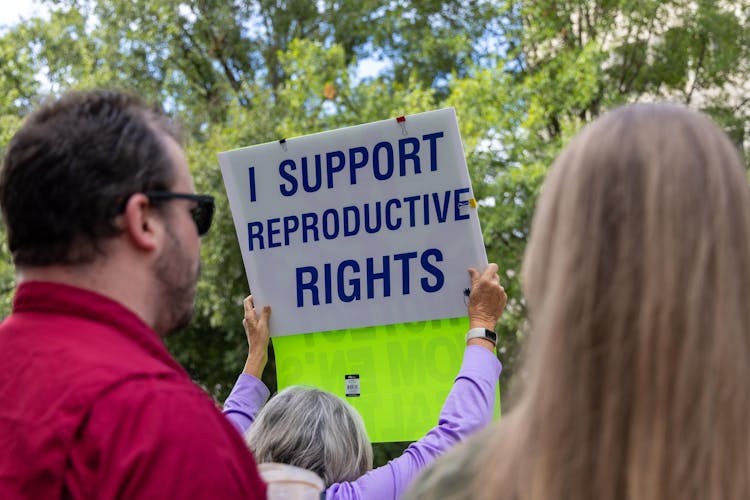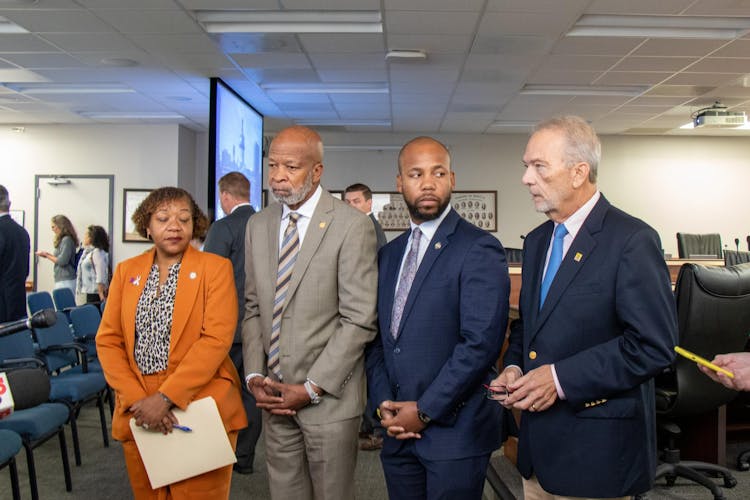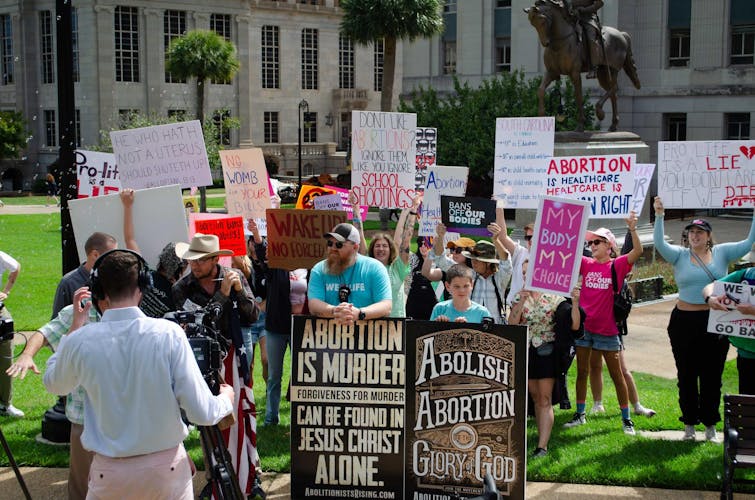Mothers, pro-life activists, doctors, women and men from all walks of life shared testimony at the public hearing for Senate Bill 323, the Unborn Child Protection Act, at the Gressette Building on the Statehouse grounds on Wednesday. The hearing was held by the South Carolina State Senate Medical Affairs Subcommittee.
S. 323 would enact a near total ban on abortions in the state of South Carolina, including removing the heartbeat provision that allows healthcare providers to perform abortions prior to detection of a fetal heartbeat, as well as exemptions to an abortion ban for cases of rape, incest, or fatal fetal anomaly.
The bill redefines the circumstances under which an abortion can be performed and criminalizes the acts of sharing information about accessing abortion services, referring someone to abortion services, providing or selling abortifacients, which are drugs or chemicals used to induce an abortion, and transporting a minor across state lines to receive an abortion or abortifacients.
Public testimony
Over 300 South Carolina constituents signed up to speak at the hearing for public comment. When the hearing began at 9:30 a.m., many people were still waiting in a long line outside the Gressette building.
About 55 people shared their comments within the allotted time for public testimony. According to Nick Reynolds of the Post and Courier, 27 people — 25 women and two men — spoke in opposition to the bill, while 28 people — 15 women and 13 men — spoke in support.
Some constituents that spoke in opposition to S. 323 said they were mothers who had received abortions under the exemptions, such as for rape, incest or fetal anomaly, that S. 323 would make unavailable.
Lacey Lane, a South Carolina mother and educator, shared her experience of her second child developing a dangerous brain anomaly while in utero. She said she decided to end her pregnancy to avoid her child suffering and to spare her family from excessive emotional harm. Lane was able to give birth to another child after ending her pregnancy, she said.

“I don’t believe in a hierarchy of reasons for abortions,” Lane said during her public comment. “Every circumstance is unique, personal and nobody’s business. No one should have this personal medical decision made for them by politicians.”
Others in opposition condemned the bill’s restriction on sharing information regarding abortion, whether online or through other means, as an attack on the First Amendment.
“I feel it is unconstitutional and un-American," Simpsonville, South Carolina resident Chris Allison said. "I can’t believe this committee would consider a bill that would ban talking about a subject like abortion.”
Some supporters of the bill cited Christianity and the Bible as the basis for their anti-abortion stances.
“God’s law prohibits the premeditated, unlawful and unjust taking of human life – Exodus one,” a woman who gave public comment said. “Abortion is murder, and our government must seek justice and correct oppression – Isaiah one.”
In a press conference after public comment, South Carolina Sen. Brad Hutto said a vote on the bill likely wouldn't take place the same day of the hearing.
Outside demonstrations
Outside the Gressette Building and across the Statehouse grounds, individuals and organizations opposing the bill organized to voice their opinions. Bonnie Cleaveland, a clinical psychologist from Charleston, said she drove with friends to attend the protest.
“We will not stand for these bans,” Cleaveland said. “They can keep bringing them up, and we are going to keep coming out and fighting them as much as we can.”
The ACLU's USC chapter's president, who tabled at the protests, said the South Carolina ACLU stands against the passage of S. 323. He said the effects of S. 323 passing would be similar to other states who have passed restrictive abortion bills.
“(We would see) increases in maternal mortality, worse healthcare, more doctors like OBGYNs leaving the state, things like that,” he said. “You would also see dramatically increased surveillance of people in order to enforce a lot of their provisions.”
Planned Parenthood South Atlantic Director of Public Affairs Vicki Ringer was one of the primary organizers of the event, along with the ACLU of South Carolina, the Women's Rights and Empowerment Network and abortion fund organizations across the Southeast. She estimated that hundreds of people attended the demonstration.
"People showing up today to voice their opinion is sometimes the only time some of those legislators will ever hear outside of their own little bubble," Ringer said. "It's important to have and represent all your constituents, not just the ones who agree with you."
On the opposite side of the Statehouse, supporters of the bill organized a prayer circle. A supporter of S. 323 declined to comment.
About the bill
S. 323, also known as the Unborn Child Protection Act, was introduced by South Carolina State Sens. Richard Cash, Rex Rice and Billy Garrett and is currently in deliberation in the South Carolina State Senate.
The bill removes the exemptions for performing an abortion in circumstances of rape, incest and fatal fetal anomaly, narrowing the circumstances under which abortion is legal.
Under the bill, abortion is permitted only if the pregnancy is deemed a severe risk to the life and health of the pregnant woman. “Substantial and irreversible impairment” of bodily functions, including ectopic pregnancy, severe preeclampsia, miscarriage and “severe physical maternal trauma,” are qualifying circumstances under which an abortion can be performed, according to the bill.
“Aiding and abetting” abortion is also prohibited, according to the bill. Sharing information about accessing abortion or maintaining a website containing information about how to access an abortion “knowing that the information will be used, or is reasonably likely to be used, for an abortion," is also prohibited.
Violation of these added policies that result in the death of an unborn child will be treated the same as a homicide, punishable by up to 30 years in prison for a successful abortion or up to 25 years for an unsuccessful abortion, according to the bill.
The subcommittee did not vote on whether to advance the bill on Wednesday. The South Carolina General Assembly will reconvene in January.
Editor's note: Georgia Fowler contributed to the reporting in this article.

